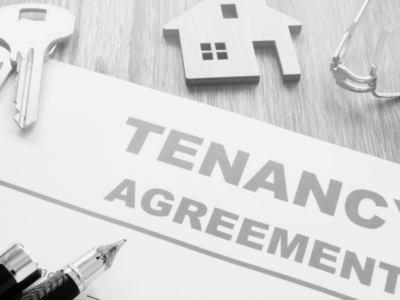The stamp duty land tax (SDLT) holiday is fast becoming the most impactful property policy introduced by any UK government since the implementation of Right to Buy in 1980.
While other asset classes are experiencing unprecedented volatility due to COVD-19, the SDLT holiday has imbued the housing market with such activity that – according to the Royal Institute of Charted Surveyors – house prices are growing at record levels.
However, even though the holiday exempts all property transactions below £500,000 from the tax, including second home purchases, it’s possible that the drawbacks of buy-to-let (BTL) investment still outweigh the potential benefits.
Ask any landlord and you’ll quickly find out about the ever-shifting rules and regulations private landlords have been forced to contend with in recent years.
Successive British governments have, in an attempt to reform the private rental sector, introduced various changes to the BLT market, many of which landlords feel disproportionally target them.
These changes, varying from amendments to Section 21 to reforms to the mortgage interest rate relief, are making the private rental market incredibly difficult to navigate. And as I have discussed previously, this could bring about a mass landlord exodus.
The complex nature of BTL investments
An independent survey of over 750 landlords, commissioned by Accumulate Capital in February revealed that 72% of property investors thought current BTL regulation made life unduly difficult for landlords.
A surprisingly high number, 37%, said they planned on selling their property in 2020. Of those, a majority (61%) stated that increased landlord regulations and taxes were the prime reasons behind their decision to leave the BTL market.
Of course, regulation is undoubtedly useful in protecting the interests of those involved in property. But regulations need to be carefully thought out with the interests of all parties involved in order for them to have the most success.
Accumulate Capital’s survey findings clearly revealed at the time that implementing regulation without a wider unified objective in mind simply burdens landlords with excessive red tape and makes renting out one’s property an unnecessarily complicated undertaking.
The SDLT holiday may have made becoming a landlord comparatively cheaper, but it does not undo the years of increased stifling regulation property investors have been facing; nor the more subtle ill-effects of COVID-19 on the private rental market.
The impact of COVID-19 on landlords
The initial impact of COVID-19 on the rental market continues to be immense. Travel restrictions and the working-from-home revolution has meant that since June, the number of new lets every month has been 25% lower than in the corresponding months in 2019.
That’s according to LonRes. Additionally, the end of the furlough scheme this month will potentially place thousands of jobs at risk, leading landlords to fear their tenants falling into arrears en-masse.
As a consequence, landlord sentiment is cynical at present. New research from the National Residential Landlords Association (NRLA) demonstrates how two thirds (66%) of private landlords expect to be negatively impacted by the COVID-19 pandemic; despite government initiatives to support the industry.
So, amidst oppressive regulation and cynical landlord sentiment – is COVID-19 the final nail in the coffin for BTL investment?
Beginning of the end?
As mentioned above, the SDLT holiday has undeniably made the process of becoming a landlord marginally cheaper due to buyer’s exemption from stamp duty.
However, it does not alleviate landlords from COVID-19’s effect on rental demand, nor the increased difficulty landlords face from policies specifically targeting landlord practices.
This may have wide-ranging consequences for the rental market; the largest of which potentially being property investors shunning BTL investments entirely in favour of alternate types of property investment.
After all, with the rate of house price growth growing steady, demand for property remaining strong, and the current low interest rate environment, there are still clear incentives for those interested in property investment. Just because the traditional BTL landlord route is now less desirable does not mean all types of property investment are off the table.
The aforementioned Accumulate Capital survey demonstrated that over a fifth (21%) of landlords are considering new property investment avenues, such as debt investment and development finance, in 2020.
If no government action is taken to support BTL investors throughout the remainder of this pandemic, then it’s likely that we will see such alternative property investment avenues increase in popularity in the future.
I have every confidence that real estate will remain a leading investment here in the UK. What will change, however, is the way people access property as an asset class.
BTL was the traditional route, but this is no longer proving to be the case. As such, I expect a rise in alternative investment avenues such as property development finance.
Paul Howells is CEO of Accumulate Capital – an investment and property development finance firm. Accumulate Capital connects registered investors with developers in the property development finance sector to enable selected, high-yielding projects in the UK and overseas






















Nah! what shrewd LL will do if they can afford to is buy additional residential properties and take in lodgers.
No S24; no taxes, no HMO licensing, no eviction problems.
Lodgers are the way to go.
If I was starting out again I would buy one 4 bed house and take in lodgers rather than have 4 BTL flats.
Same net income but no problems getting rid of rent defaulting lodgers.
LL need to sell off BTL properties and invest in residential houses ideally 4 bed ones.
No point in 5 bed ones as they would need to be compliant with Mandatory HMO licensing which very few could comply with.
Lodgers should be the new BTL!